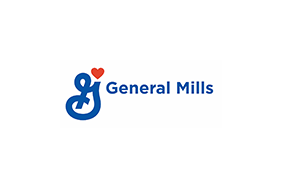PEPFAR, USAID and General Mills Partner to Improve Food Processing in Africa
Partnership Underscores U.S. Government Initiatives to Address Global Health and Hunger
Published 09-28-09
Submitted by General Mills
On Friday, September 25, 2009, Secretary of State Hillary Rodham Clinton announced a public-private partnership with General Mills, a leading U.S. food company, the U.S. Agency for International Development (USAID) and the U.S. President's Emergency Plan for AIDS Relief (PEPFAR) that will improve the capacity of small and medium-sized food businesses across sub-Saharan Africa to produce healthy, fortified food products.
The partnership will link the technical and business expertise of General Mills and up to nine additional food companies with up to 200 small and medium-sized mills and food processors in 15 sub-Saharan African countries. The partnership aims to improve the ability of these small and medium-sized enterprises to produce high-quality, nutritious and safe food at affordable prices. The partnership, which could potentially reach a value of $21 million, will also benefit an estimated 1.6 million smallholder farmers who supply these businesses.
A key component of the United States global Food Security initiative is to help countries link small farmers to local markets to increase family income and food security. By improving the manufacturing and business practices of these local firms, this partnership will strengthen that local market for small farmers and will enable the businesses to produce better quality food products at lower costs.
Through PEPFAR, America supports life-saving antiretroviral treatment for over two million people in Africa. For severely malnourished patients, PEPFAR programs may prescribe therapeutic and supplemental foods to ensure the effectiveness of treatment. Yet, many countries rely on expensive food imports. This partnership will source foods locally, stimulating the local economy, and promoting food security in areas heavily affected by HIV/AIDS.
The long-term vision shared by General Mills and the U.S. Government is for the partnership is to engage multiple food companies and food industry-related associations to provide similar expertise to processors in Africa. The core expertise of food scientists, process engineers, and operations managers will have a transformative effect on the African agribusinesses, making the beneficiary firms' operations more efficient and expanding their potential markets and product offerings.
This public-private partnership is part of the ongoing effort by Secretary Clinton and the State Department to engage non-traditional actors, including the private sector, in international development and diplomacy.
About General Mills
One of the world's leading food companies, General Mills operates in more than 100 countries and markets more than 100 consumer brands, including Cheerios, Häagen-Dazs, Nature Valley, Betty Crocker, Pillsbury, Green Giant, Old El Paso, Progresso, Cascadian Farm, Muir Glen, and more. Headquartered in Minneapolis, Minnesota, U.S.A., General Mills had fiscal 2009 global net sales of US$15.9 billion, including the company’s $1.2 billion proportionate share of joint venture net sales.

General Mills
General Mills
About General Mills
General Mills is one of the world’s leading food companies, operating in more than 100 countries around the world. Its brands include Cheerios, Fiber One, Häagen-Dazs, Nature Valley, Yoplait, Betty Crocker, Pillsbury, Green Giant, Old El Paso, Wanchai Ferry, Yoki and more. Headquartered in Minneapolis, Minn., USA, General Mills had fiscal 2015 worldwide sales of US $18.8 billion.
More from General Mills

